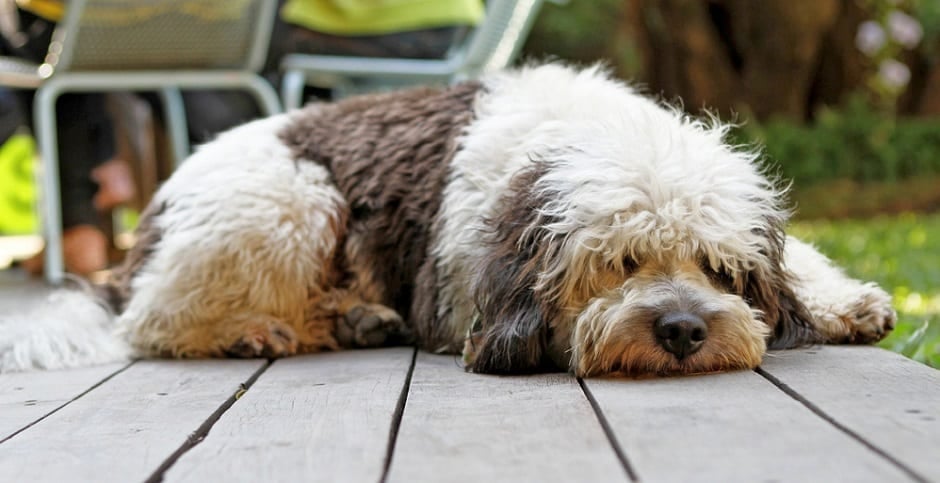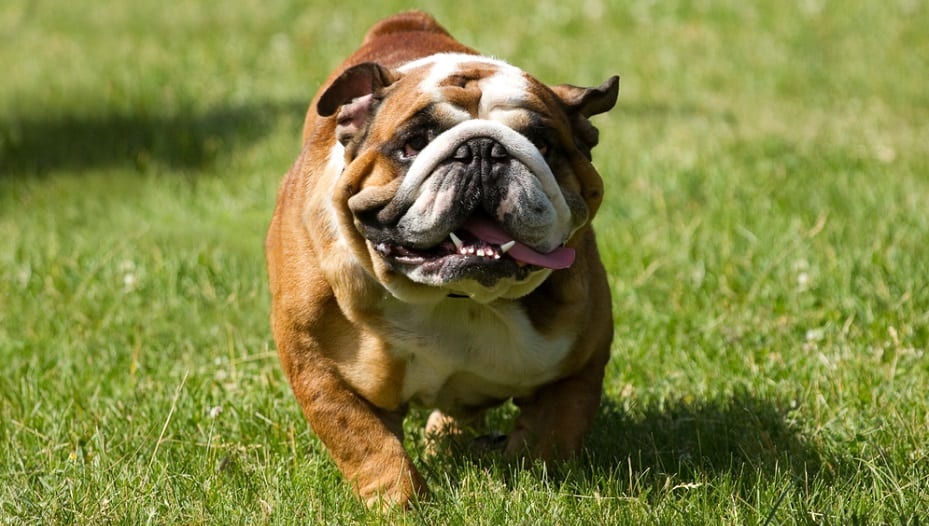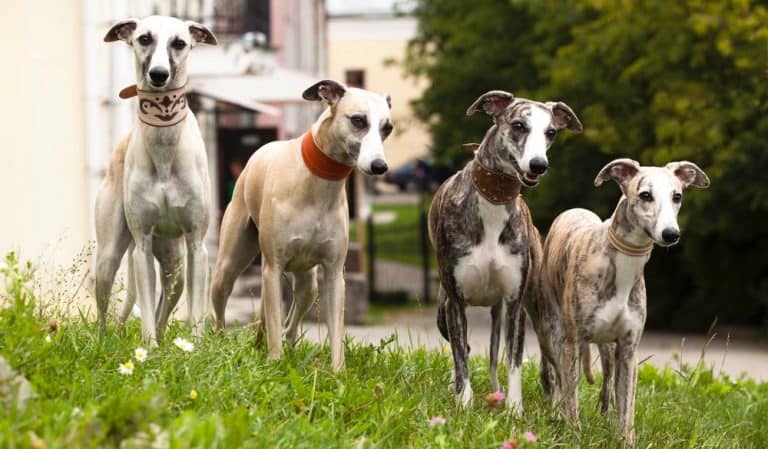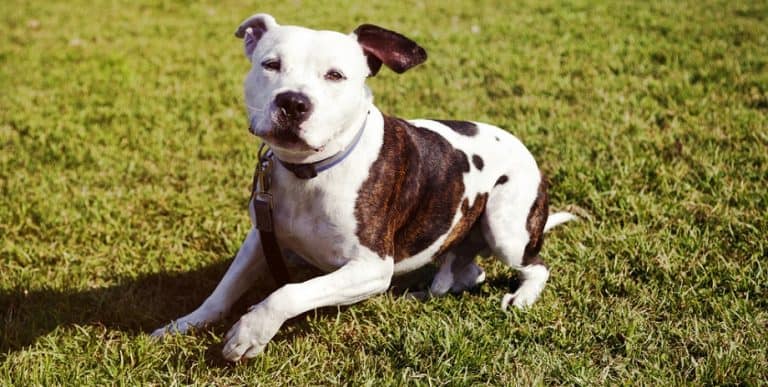My Dog Sounds Congested When Sleeping & Breathing
If your dog sounds congested when breathing or sleeping, you should pay close attention. There may be several reasons why you would notice his congested breathing. But first, understand that this is quite normal in most situations because many dogs face this at some point in their lives.
If you observe that your dog is congested, it may be nothing serious and, many times, requires just a simple treatment. But prolonged congested breathing is probably a serious issue that requires medical attention.
Taking your dog to the veterinarian will help you discover any serious conditions affecting him. It is better to be safe than sorry, so have your dog go for a checkup to see if anything is wrong. It can potentially be a serious issue.
We have outlined the possible causes and courses of action for your dog, who may have congested breathing.
What Is Noisy Breathing In Dogs?

As a dog parent, it may be unwise to simply dismiss your dog’s noisy breathing problem because there could be fatal consequences. You should also look at his actions, not just his difficulty breathing.
From observation, you may notice that he displays concerning actions that go along with the uncomfortable breathing.
Noisy breathing in your dog is also known as strider and sterter. Strider is the name for wheezing, raspy, or vibrating sounds whenever your dog inhales and exhales. Sterter is gasping and snoring when breathing.
Noisy breathing can be a symptom of a larger medical issue that your dog has. If your dog has abnormal breathing that is congenital or acquired, it could mean that he has a problem with his respiratory system, and he should be taken to the vet as soon as possible.
What Are The Common Causes Of Nasal Congestion?
Your dog could have nasal congestion due to several reasons, including a disease he has developed, an injury, or he may be born that way. This is a list of the most common causes of nasal congestion:
- Nasopharyngeal polyps – Inflammatory masses originating from the Eustachian tube or middle ear
- Laryngeal paralysis – acquired or inherited paralysis of the larynx or voice box
- Brachycephalic airway syndrome – irregular breathing passages in animals with flat faces and short noses
- Tracheal stenosis – this is the narrowing of the windpipe
- Discharge of (blood, pus, and mucus) in the airway lumen
- Nasopharyngeal stenosis – This is when the back of the throat and nose are narrowing
- Cancer – malignant or benign tumors of the larynx or voice box
- Granulomatous laryngitis – Nodular, inflammatory lesions of the voice box or larynx
- Tracheal collapse – diameter reduction of the lumen of the windpipe when breathing
- Acromegaly – high levels of growth hormone, causing bone enlargement
- There may also be foreign bodies in the windpipe (trachea) or other parts of the airway
Other Common Reasons for Nighttime Congestion

You may notice that your dog is more congested at night. Here are the more common reasons for this nighttime annoyance for your furry friend:
Bad Sleeping Position
When your dog is sleeping, he may be in a strange position which may cause him to sound congested. This is the same for humans who sleep in bad positions that cause them to snore. Your dog could be sleeping in a bad position, and the congested sounds may be quite loud.
If you notice that your dog is making congested noises when sleeping in strange positions, like on his back, you probably have nothing to worry about. That’s because sleeping on his back is probably not his normal napping position, so congested sounds would be normal in that instance.
If your dog is sleeping uncomfortably on their back or side, and their neck or head is in an uncomfortable position, then their airways may be partially blocked, causing them to sound congested.
You most likely won’t hear this sound when your dog takes on a normal napping position. However, if your dog takes a normal napping position but still sounds congested, something else may be at play here. There could be another reason for the congestion.
You should do your best to analyze your dog for any other possible reason for these congested sounds. If you cannot figure out why your dog sounds congested when sleeping, then take him to the vet as soon as possible.
Dogs can also suffer from sleep apnea. So, while the congested sound or snoring may just be an annoyance to you as a dog owner, you want to get it checked out because it can be a warning sign for an underlying cause or problem that requires veterinary medication.
A Cold or Allergies
Dogs can get a cold or respiratory infection, just like humans. They also have many of the same symptoms we do when we get a cold, respiratory infection, or allergic reaction. If you think your dog has an allergy, consult with your veterinarian.
If your dog has a cold, you may notice a stuffy nose and congestion, leading to these sounds at night. There may also be sneezing, runny nose, and fever.
If they breathe loudly at night and have these other symptoms, it should be okay on its own after some time has passed. But if the symptoms persist, then it may be more serious, so you should visit your vet.
Dental Issues
If your dog experiences any dental issues or is in poor dental health, it can cause sounds resembling congestion. This includes an infection or a cavity. Since the mouth is connected to the airway, the irritation can transfer to their breathing. If you notice the congestion and it’s been a while since your dog has had a dental exam, it might be time for oThe Dog’s Age
If you have an older dog, they may sound congested when sleeping. As your dog gets older, the nerves in their airways begin weakening. This is typically normal and not always a cause for concern, but you want to ensure your older dog is comfortable at night as he sleeps. Sometimes the congestion can be a sign of laryngeal paralysis. This results in partial airway obstruction.
Secondhand Smoke
When we smoke around another person, we affect their lungs; the same applies to our dog. Secondhand smoke for a dog can also result in irreversible damage. The inflammation in the dog’s airway caused by the smoke can lead to snoring and congestion.
Obesity
Does extra weight contribute to congested dogs? It is not uncommon for your dog to have congested breathing when he gains extra weight. You may notice this, especially while he is sleeping. The extra weight usually disrupts proper breathing and blocks the airway.
Humans who are overweight can suffer from sleep apnea, and with dogs, you may notice difficulty breathing while they are asleep.
Monitor your dog’s weight and make sure that they get regular exercise to prevent obesity. A balanced diet that is full of lean protein will make sure that they are healthy.
Also, remember that you should be feeding your dog based on his development period because senior dogs may require less food than middle-aged dogs or a puppy. Senior dogs are usually less active, so do not overfeed them.
Medications
If you notice these congestion sounds shortly after introducing your dog to a new medication, check the side effects. Side effects from medication may also cause your dog to have nasal congestion. The medication may make your dog drowsy, causing them to go into a deep sleep where they sound congested.
This may not happen with all medication, but give your veterinarian a call if you notice this.
When Should I See A Vet?
Sometimes it may be crucial to get your dog to a veterinarian as soon as possible because the condition could be fatal. If he is at risk for respiratory collapse or other serious conditions, waiting too long may do further harm.
It may be a case where your dog requires a surgical procedure to deal with congested breathing. He may be suffering from a condition that shortens the elongated palate.
Medical practitioners may have to remove obstructive polyps or foreign matter in the respiratory system. This could save your dog’s life.
All surgical procedures come with risks during and after surgery. After these procedures, you may need to take special care of your dog as he heals. You can ask the vet about the best way to care for him as he recovers from these procedures.
When you take your dog to the vet, he may already be in the critical stages of the condition from which he suffers.
You can tell your dog needs to go to the vet when his breathing is especially labored to the point that he can’t function. Noisy breathing should not occur for periods longer than a few days.
How Do I Identify Chronic Nasal Congestion?
- Your dog may have unusually loud breathing sounds that may have existed for many years
- Your dog may have a loss or change of voice and be unable to bark
- Your dog may have to extend more effort to breath
- Your dog may make breathing sounds that you can hear from a distance without using a stethoscope
- Your dog may have a partially blocked upper airway causing an increase in airway sounds and a distinct breathing pattern change
How Do I Identify Noisy Breathing?
Your dog may have noisy breathing for many reasons that take the form of raspy sounds or more serious labored breathing. If you notice any changes in your dog’s breathing, it is always good to check with your veterinarian.
- Breathing with his mouth open
- Unable to exercise
- General restlessness
- He may only breathe noisily during exertion
- Raspy Noise when he exhales or inhales
- Difficult breathing
- Drastic chest movement
- Congested sounds heard at a distance
- Nasal discharge
- Loss or change of bark
- Snorting
- Gagging
- Coughing
- Snoring
Home Remedies For Dog Nasal Congestion

For minor nasal congestion that may happen at least once throughout your dog’s life, you can try a series of home remedies. remember that’s home remedies should never be replaced with medical attention in serious cases. they are simply immediate relief for nasal congestion.
For minor nasal congestion that may happen at least once throughout your dog’s life, you can try a series of home remedies. Remember that home remedies should never be replaced with medical attention in serious cases. They are simply immediate relief for nasal congestion.
Herbs And Honey
Some herbs can naturally treat your dog’s and nasal congestion. Some of these herbs are elderflower and bichromicum, which have been shown to reduce nasal congestion. They also can provide a few other health benefits. Honey, along with Kali herbs, has been proven to work as well.
When it comes to natural solutions for nasal conditions, honey and many other herbs have a great effect. However, you should only give your dog 1 teaspoon of honey daily.
Humidifier For Dog Congestion
A dry environment can congest your dog, so using a humidifier in the room can help reduce this congestion by clearing the airways.
Aromatherapy For Dog Congestion
You should also consider using aromatherapy to relieve the symptoms of congestion when your dog has a cold. Essential oils like lavender and peppermint are usually very effective. However, before you use any essential oils, you should check with your vet because your dog may be allergic.
Benadryl
This is the most used over-the-counter medication for a dog’s nasal congestion. Benadryl blocks histamine receptors that can cause your dog’s congestion, but as we have stated, there are many reasons for chest congestion, so don’t use Benadryl unless you know exactly what is happening.
Chicken Soup
Chicken soup has been proven to help congested humans and dogs. Chicken soup can also provide healthy nutrients for your dog when he cannot eat heavier food. It is better to give him homemade chicken soup as opposed to canned chicken soup because you can control the sodium.
Is Sevin Dust Safe For Dogs?
Sevin dust should never be used around your dog. It is extremely toxic and has a synthetic chemical by the name of carbaryl. Carbaryl attacks the nervous system of insects that come in physical contact by ingestion or inhalation.
This substance can have the same effect on dogs who are in contact with it. If you are using Sevin dust, then make sure that your dog is nowhere close to the substance.
If your dog comes in contact with it by accident, he should be taken to the vet as soon as possible. You may notice that he is vomiting, can’t breathe, or is uncoordinated due to the inhalation of this dust.
Your dog may be innocently playing when he encounters the substance. Unfortunately, many of these cases are fatal, even if medical assistance is given.
Dogs Born With Congested Breathing
Many dogs still have congested breathing even though they do not suffer from health issues. They just may be born that way. For example, some dog breeds have naturally small noses, which affects their breathing and makes them sound congested.
Dogs like pugs and French bulldogs are prone to a disease called Brachycephalic Obstructive Airway Syndrome (BOAS) because they are flat-faced. They get this congestion because of how their skulls are shaped, which can obstruct their airways.
Research has also been conducted to suggest that some dog breeds have genetics predisposing them to respiratory problems. These genes are mostly found in flat-faced breeds.

Final Thoughts
While your dog is sleeping, it is important to remember that congested breathing happens quite often with many dogs, so don’t panic if you notice this.
But there are other occasions when your dog has serious difficulty breathing, and you will usually know the difference.
The most important thing is to practice continual monitoring to ensure your dog is safe and avoid toxic substances so that accidents do not occur.
Congested Breathing FAQs
Do dogs get congested by allergies?
Your dog may also be congested because of allergies. Like humans, your dog may have seasonal allergies resulting in inflammation or a stuffy nose.
The allergies may come from pollen, food, or just the environment. Visit a veterinarian to treat these allergies, which may sometimes be fatal.
What do I do if my dog has something stuck in his nose?
If there is noisy breathing or a congested sound, there may be times when something is simply stuck in your dog’s nose. This may be plant seeds, grass, wood chips, bone, or leaves. You may notice your dog sneezing violently, trying to get rid of the obstruction in his nose. He can also have a nosebleed or rub his nose with his paw.
If this is happening for a long period, you may notice a bloody discharge. This is a serious issue that needs medical attention from a vet. However, occasionally, you can help your dog remove the obstruction with tweezers.
The only issue with this is that he may not allow you to help him unless you get assistance to hold him down while you remove the obstruction. You do not want to do more harm than good, so if it is quite difficult to remove, then go to your vet.
Does kennel cough cause congestion?
Kennel cough often comes with wheezing and breathing difficulties. The dog may begin wheezing between coughing spells or after coughing for a while. The wheezing often comes from nasal and chest congestion. Other common symptoms of kennel cough and dog congestion are a runny nose, eye discharge, sneezing, and coughing.
Is congestion a symptom of congestive heart failure?
Heart failure can occur when the heart fails to pump blood as it should. The blood can begin to back up and cause fluid buildup in the lungs. This fluid buildup can cause shortness of breath.
The most common heart disease symptoms for affected dogs include coughing and difficulty breathing, fatigue, weakness or collapse, bloating or swelling of the abdomen, and sudden onset of back leg weakness or paralysis.
What is reverse sneezing?
A reverse sneeze is a common name for paroxysmal respiration. It is respiratory congestion where the dog sucks air in rapidly instead of blowing it out, causing the opposite of sneezing. There is often a honking sound as well.






